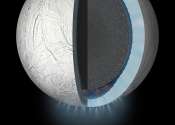Geoscientists use zircon to trace origin of Earth's continents
Geoscientists have long known that some parts of the continents formed in the Earth's deep past, but the speed in which land rose above global seas—and the exact shapes that land masses formed—have so far eluded experts.









